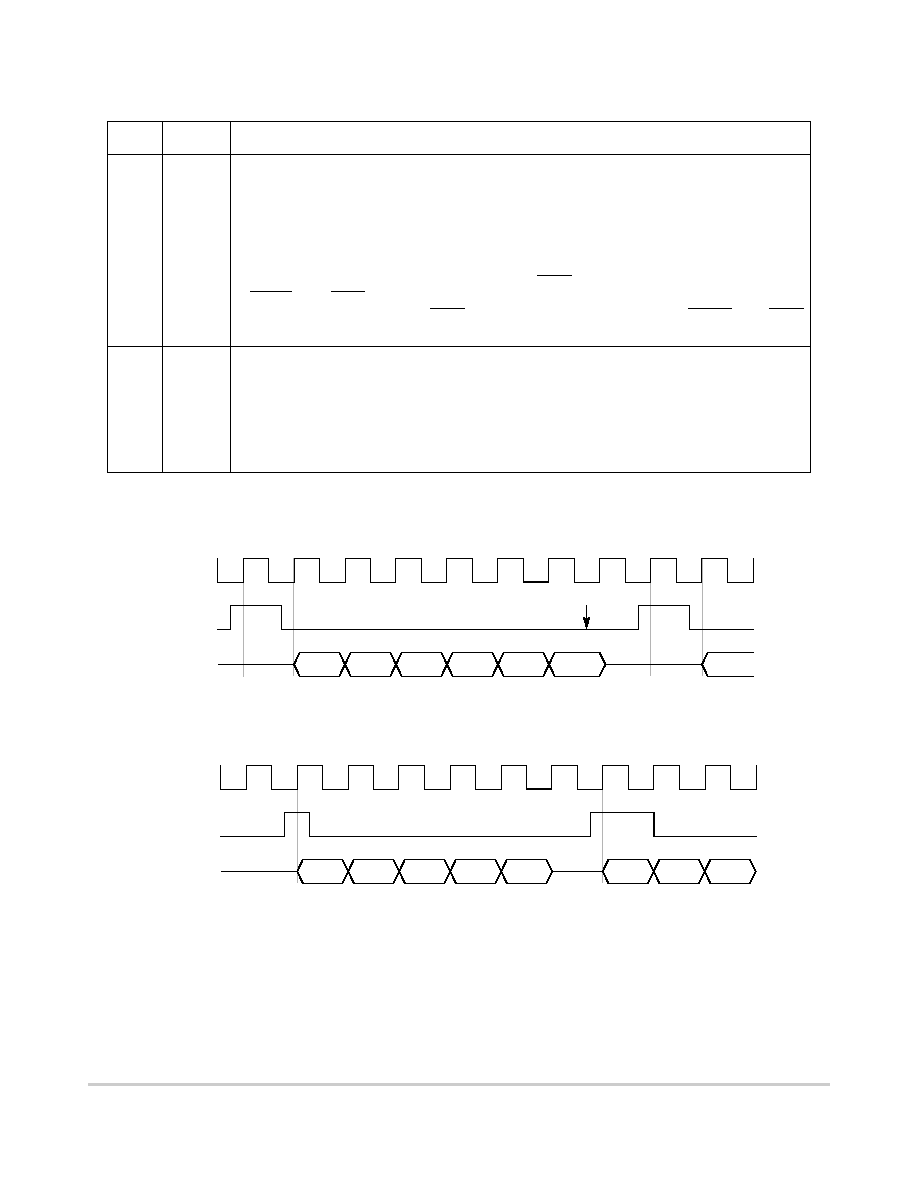- 您現(xiàn)在的位置:買賣IC網(wǎng) > PDF目錄69037 > MPC866PZP133A (MOTOROLA INC) 32-BIT, 133 MHz, RISC PROCESSOR, PBGA357 PDF資料下載
參數(shù)資料
| 型號: | MPC866PZP133A |
| 廠商: | MOTOROLA INC |
| 元件分類: | 微控制器/微處理器 |
| 英文描述: | 32-BIT, 133 MHz, RISC PROCESSOR, PBGA357 |
| 封裝: | 25 X 25 MM, 1.27 MM PITCH, PLASTIC, BGA-357 |
| 文件頁數(shù): | 938/1366頁 |
| 文件大?。?/td> | 14334K |
| 代理商: | MPC866PZP133A |
第1頁第2頁第3頁第4頁第5頁第6頁第7頁第8頁第9頁第10頁第11頁第12頁第13頁第14頁第15頁第16頁第17頁第18頁第19頁第20頁第21頁第22頁第23頁第24頁第25頁第26頁第27頁第28頁第29頁第30頁第31頁第32頁第33頁第34頁第35頁第36頁第37頁第38頁第39頁第40頁第41頁第42頁第43頁第44頁第45頁第46頁第47頁第48頁第49頁第50頁第51頁第52頁第53頁第54頁第55頁第56頁第57頁第58頁第59頁第60頁第61頁第62頁第63頁第64頁第65頁第66頁第67頁第68頁第69頁第70頁第71頁第72頁第73頁第74頁第75頁第76頁第77頁第78頁第79頁第80頁第81頁第82頁第83頁第84頁第85頁第86頁第87頁第88頁第89頁第90頁第91頁第92頁第93頁第94頁第95頁第96頁第97頁第98頁第99頁第100頁第101頁第102頁第103頁第104頁第105頁第106頁第107頁第108頁第109頁第110頁第111頁第112頁第113頁第114頁第115頁第116頁第117頁第118頁第119頁第120頁第121頁第122頁第123頁第124頁第125頁第126頁第127頁第128頁第129頁第130頁第131頁第132頁第133頁第134頁第135頁第136頁第137頁第138頁第139頁第140頁第141頁第142頁第143頁第144頁第145頁第146頁第147頁第148頁第149頁第150頁第151頁第152頁第153頁第154頁第155頁第156頁第157頁第158頁第159頁第160頁第161頁第162頁第163頁第164頁第165頁第166頁第167頁第168頁第169頁第170頁第171頁第172頁第173頁第174頁第175頁第176頁第177頁第178頁第179頁第180頁第181頁第182頁第183頁第184頁第185頁第186頁第187頁第188頁第189頁第190頁第191頁第192頁第193頁第194頁第195頁第196頁第197頁第198頁第199頁第200頁第201頁第202頁第203頁第204頁第205頁第206頁第207頁第208頁第209頁第210頁第211頁第212頁第213頁第214頁第215頁第216頁第217頁第218頁第219頁第220頁第221頁第222頁第223頁第224頁第225頁第226頁第227頁第228頁第229頁第230頁第231頁第232頁第233頁第234頁第235頁第236頁第237頁第238頁第239頁第240頁第241頁第242頁第243頁第244頁第245頁第246頁第247頁第248頁第249頁第250頁第251頁第252頁第253頁第254頁第255頁第256頁第257頁第258頁第259頁第260頁第261頁第262頁第263頁第264頁第265頁第266頁第267頁第268頁第269頁第270頁第271頁第272頁第273頁第274頁第275頁第276頁第277頁第278頁第279頁第280頁第281頁第282頁第283頁第284頁第285頁第286頁第287頁第288頁第289頁第290頁第291頁第292頁第293頁第294頁第295頁第296頁第297頁第298頁第299頁第300頁第301頁第302頁第303頁第304頁第305頁第306頁第307頁第308頁第309頁第310頁第311頁第312頁第313頁第314頁第315頁第316頁第317頁第318頁第319頁第320頁第321頁第322頁第323頁第324頁第325頁第326頁第327頁第328頁第329頁第330頁第331頁第332頁第333頁第334頁第335頁第336頁第337頁第338頁第339頁第340頁第341頁第342頁第343頁第344頁第345頁第346頁第347頁第348頁第349頁第350頁第351頁第352頁第353頁第354頁第355頁第356頁第357頁第358頁第359頁第360頁第361頁第362頁第363頁第364頁第365頁第366頁第367頁第368頁第369頁第370頁第371頁第372頁第373頁第374頁第375頁第376頁第377頁第378頁第379頁第380頁第381頁第382頁第383頁第384頁第385頁第386頁第387頁第388頁第389頁第390頁第391頁第392頁第393頁第394頁第395頁第396頁第397頁第398頁第399頁第400頁第401頁第402頁第403頁第404頁第405頁第406頁第407頁第408頁第409頁第410頁第411頁第412頁第413頁第414頁第415頁第416頁第417頁第418頁第419頁第420頁第421頁第422頁第423頁第424頁第425頁第426頁第427頁第428頁第429頁第430頁第431頁第432頁第433頁第434頁第435頁第436頁第437頁第438頁第439頁第440頁第441頁第442頁第443頁第444頁第445頁第446頁第447頁第448頁第449頁第450頁第451頁第452頁第453頁第454頁第455頁第456頁第457頁第458頁第459頁第460頁第461頁第462頁第463頁第464頁第465頁第466頁第467頁第468頁第469頁第470頁第471頁第472頁第473頁第474頁第475頁第476頁第477頁第478頁第479頁第480頁第481頁第482頁第483頁第484頁第485頁第486頁第487頁第488頁第489頁第490頁第491頁第492頁第493頁第494頁第495頁第496頁第497頁第498頁第499頁第500頁第501頁第502頁第503頁第504頁第505頁第506頁第507頁第508頁第509頁第510頁第511頁第512頁第513頁第514頁第515頁第516頁第517頁第518頁第519頁第520頁第521頁第522頁第523頁第524頁第525頁第526頁第527頁第528頁第529頁第530頁第531頁第532頁第533頁第534頁第535頁第536頁第537頁第538頁第539頁第540頁第541頁第542頁第543頁第544頁第545頁第546頁第547頁第548頁第549頁第550頁第551頁第552頁第553頁第554頁第555頁第556頁第557頁第558頁第559頁第560頁第561頁第562頁第563頁第564頁第565頁第566頁第567頁第568頁第569頁第570頁第571頁第572頁第573頁第574頁第575頁第576頁第577頁第578頁第579頁第580頁第581頁第582頁第583頁第584頁第585頁第586頁第587頁第588頁第589頁第590頁第591頁第592頁第593頁第594頁第595頁第596頁第597頁第598頁第599頁第600頁第601頁第602頁第603頁第604頁第605頁第606頁第607頁第608頁第609頁第610頁第611頁第612頁第613頁第614頁第615頁第616頁第617頁第618頁第619頁第620頁第621頁第622頁第623頁第624頁第625頁第626頁第627頁第628頁第629頁第630頁第631頁第632頁第633頁第634頁第635頁第636頁第637頁第638頁第639頁第640頁第641頁第642頁第643頁第644頁第645頁第646頁第647頁第648頁第649頁第650頁第651頁第652頁第653頁第654頁第655頁第656頁第657頁第658頁第659頁第660頁第661頁第662頁第663頁第664頁第665頁第666頁第667頁第668頁第669頁第670頁第671頁第672頁第673頁第674頁第675頁第676頁第677頁第678頁第679頁第680頁第681頁第682頁第683頁第684頁第685頁第686頁第687頁第688頁第689頁第690頁第691頁第692頁第693頁第694頁第695頁第696頁第697頁第698頁第699頁第700頁第701頁第702頁第703頁第704頁第705頁第706頁第707頁第708頁第709頁第710頁第711頁第712頁第713頁第714頁第715頁第716頁第717頁第718頁第719頁第720頁第721頁第722頁第723頁第724頁第725頁第726頁第727頁第728頁第729頁第730頁第731頁第732頁第733頁第734頁第735頁第736頁第737頁第738頁第739頁第740頁第741頁第742頁第743頁第744頁第745頁第746頁第747頁第748頁第749頁第750頁第751頁第752頁第753頁第754頁第755頁第756頁第757頁第758頁第759頁第760頁第761頁第762頁第763頁第764頁第765頁第766頁第767頁第768頁第769頁第770頁第771頁第772頁第773頁第774頁第775頁第776頁第777頁第778頁第779頁第780頁第781頁第782頁第783頁第784頁第785頁第786頁第787頁第788頁第789頁第790頁第791頁第792頁第793頁第794頁第795頁第796頁第797頁第798頁第799頁第800頁第801頁第802頁第803頁第804頁第805頁第806頁第807頁第808頁第809頁第810頁第811頁第812頁第813頁第814頁第815頁第816頁第817頁第818頁第819頁第820頁第821頁第822頁第823頁第824頁第825頁第826頁第827頁第828頁第829頁第830頁第831頁第832頁第833頁第834頁第835頁第836頁第837頁第838頁第839頁第840頁第841頁第842頁第843頁第844頁第845頁第846頁第847頁第848頁第849頁第850頁第851頁第852頁第853頁第854頁第855頁第856頁第857頁第858頁第859頁第860頁第861頁第862頁第863頁第864頁第865頁第866頁第867頁第868頁第869頁第870頁第871頁第872頁第873頁第874頁第875頁第876頁第877頁第878頁第879頁第880頁第881頁第882頁第883頁第884頁第885頁第886頁第887頁第888頁第889頁第890頁第891頁第892頁第893頁第894頁第895頁第896頁第897頁第898頁第899頁第900頁第901頁第902頁第903頁第904頁第905頁第906頁第907頁第908頁第909頁第910頁第911頁第912頁第913頁第914頁第915頁第916頁第917頁第918頁第919頁第920頁第921頁第922頁第923頁第924頁第925頁第926頁第927頁第928頁第929頁第930頁第931頁第932頁第933頁第934頁第935頁第936頁第937頁當(dāng)前第938頁第939頁第940頁第941頁第942頁第943頁第944頁第945頁第946頁第947頁第948頁第949頁第950頁第951頁第952頁第953頁第954頁第955頁第956頁第957頁第958頁第959頁第960頁第961頁第962頁第963頁第964頁第965頁第966頁第967頁第968頁第969頁第970頁第971頁第972頁第973頁第974頁第975頁第976頁第977頁第978頁第979頁第980頁第981頁第982頁第983頁第984頁第985頁第986頁第987頁第988頁第989頁第990頁第991頁第992頁第993頁第994頁第995頁第996頁第997頁第998頁第999頁第1000頁第1001頁第1002頁第1003頁第1004頁第1005頁第1006頁第1007頁第1008頁第1009頁第1010頁第1011頁第1012頁第1013頁第1014頁第1015頁第1016頁第1017頁第1018頁第1019頁第1020頁第1021頁第1022頁第1023頁第1024頁第1025頁第1026頁第1027頁第1028頁第1029頁第1030頁第1031頁第1032頁第1033頁第1034頁第1035頁第1036頁第1037頁第1038頁第1039頁第1040頁第1041頁第1042頁第1043頁第1044頁第1045頁第1046頁第1047頁第1048頁第1049頁第1050頁第1051頁第1052頁第1053頁第1054頁第1055頁第1056頁第1057頁第1058頁第1059頁第1060頁第1061頁第1062頁第1063頁第1064頁第1065頁第1066頁第1067頁第1068頁第1069頁第1070頁第1071頁第1072頁第1073頁第1074頁第1075頁第1076頁第1077頁第1078頁第1079頁第1080頁第1081頁第1082頁第1083頁第1084頁第1085頁第1086頁第1087頁第1088頁第1089頁第1090頁第1091頁第1092頁第1093頁第1094頁第1095頁第1096頁第1097頁第1098頁第1099頁第1100頁第1101頁第1102頁第1103頁第1104頁第1105頁第1106頁第1107頁第1108頁第1109頁第1110頁第1111頁第1112頁第1113頁第1114頁第1115頁第1116頁第1117頁第1118頁第1119頁第1120頁第1121頁第1122頁第1123頁第1124頁第1125頁第1126頁第1127頁第1128頁第1129頁第1130頁第1131頁第1132頁第1133頁第1134頁第1135頁第1136頁第1137頁第1138頁第1139頁第1140頁第1141頁第1142頁第1143頁第1144頁第1145頁第1146頁第1147頁第1148頁第1149頁第1150頁第1151頁第1152頁第1153頁第1154頁第1155頁第1156頁第1157頁第1158頁第1159頁第1160頁第1161頁第1162頁第1163頁第1164頁第1165頁第1166頁第1167頁第1168頁第1169頁第1170頁第1171頁第1172頁第1173頁第1174頁第1175頁第1176頁第1177頁第1178頁第1179頁第1180頁第1181頁第1182頁第1183頁第1184頁第1185頁第1186頁第1187頁第1188頁第1189頁第1190頁第1191頁第1192頁第1193頁第1194頁第1195頁第1196頁第1197頁第1198頁第1199頁第1200頁第1201頁第1202頁第1203頁第1204頁第1205頁第1206頁第1207頁第1208頁第1209頁第1210頁第1211頁第1212頁第1213頁第1214頁第1215頁第1216頁第1217頁第1218頁第1219頁第1220頁第1221頁第1222頁第1223頁第1224頁第1225頁第1226頁第1227頁第1228頁第1229頁第1230頁第1231頁第1232頁第1233頁第1234頁第1235頁第1236頁第1237頁第1238頁第1239頁第1240頁第1241頁第1242頁第1243頁第1244頁第1245頁第1246頁第1247頁第1248頁第1249頁第1250頁第1251頁第1252頁第1253頁第1254頁第1255頁第1256頁第1257頁第1258頁第1259頁第1260頁第1261頁第1262頁第1263頁第1264頁第1265頁第1266頁第1267頁第1268頁第1269頁第1270頁第1271頁第1272頁第1273頁第1274頁第1275頁第1276頁第1277頁第1278頁第1279頁第1280頁第1281頁第1282頁第1283頁第1284頁第1285頁第1286頁第1287頁第1288頁第1289頁第1290頁第1291頁第1292頁第1293頁第1294頁第1295頁第1296頁第1297頁第1298頁第1299頁第1300頁第1301頁第1302頁第1303頁第1304頁第1305頁第1306頁第1307頁第1308頁第1309頁第1310頁第1311頁第1312頁第1313頁第1314頁第1315頁第1316頁第1317頁第1318頁第1319頁第1320頁第1321頁第1322頁第1323頁第1324頁第1325頁第1326頁第1327頁第1328頁第1329頁第1330頁第1331頁第1332頁第1333頁第1334頁第1335頁第1336頁第1337頁第1338頁第1339頁第1340頁第1341頁第1342頁第1343頁第1344頁第1345頁第1346頁第1347頁第1348頁第1349頁第1350頁第1351頁第1352頁第1353頁第1354頁第1355頁第1356頁第1357頁第1358頁第1359頁第1360頁第1361頁第1362頁第1363頁第1364頁第1365頁第1366頁

20-20
MPC866 PowerQUICC Family User’s Manual
MOTOROLA
PRELIMINARY—SUBJECT TO CHANGE WITHOUT NOTICE
TSA Implementation
The following series of gures show timing examples. Figure 20-14 and Figure 20-15 show
the effects of changing the delay from frame sync to data valid.
Figure 20-14. One Clock Delay from Sync to Data (xFSD = 01)
Figure 20-15. No Delay from Sync to Data (xFSD = 00)
Figure 20-16 and Figure 20-17 show example timings while varying SIMODE[CE] with a
constant frame sync delay of one bit.
13, 29
GMx
Grant mode for TDMa/b
0 GCI/SCIT mode. The GCI/SCIT D channel grant mechanism for transmission is supported
internally. The grant is signalled by one bit of the Rx frame and is marked by setting
SIRAM[CSEL] to 111 to assert an internal strobe. See Section 20.2.6.2.2, “SCIT Mode
1 IDL mode. A grant mechanism is supported if the corresponding SICR[GRn] are set. The grant
is a sample of the L1GRx signal while L1TSYNCx is asserted. This grant mechanism implies
the IDL access controls transmission on the D channel. See Section 20.2.5.2, “Programming
the IDL Interface.”Note that if GMa = 1, then the RTS4 signal on ports B and C functions as
L1RQa. (The RTS4 function is still available on port D.)
Note that if GMb = 1, then the RTS3 signal on ports B and C functions as L1RQb. (The RTS3
function is still available on port D.)
14–15,
30–31
TFSDx
Transmit frame sync delay for TDMa/b. Determines the delay between the Tx sync and the rst bit
of the Tx frame. If CRTx is set, the Rx sync is used as the common sync, and the TFSDx bits refer
to this common sync.
00 No bit delay. The rst bit of the frame is sent on the same clock as the sync.
01 1-bit delay
10 2-bit delay
11 3-bit delay
Table 20-5. SIMODE Field Descriptions (continued)
Bits
Name
Description
L1CLK
Data
(CE=0)
L1SYNC
(FE=1)
Bit-0
Bit-1
Bit-2
Bit-3
Bit-4
Bit-0
One Clock Delay from Sync Latch to First Bit of Frame
Bit-5
End of Frame
L1CLK
Data
(CE=0)
L1SYNC
(FE=1)
Bit-0
Bit-1
Bit-2
Bit-3
Bit-4
No Delay from Sync Latch to First Bit of Frame
Bit-2
Bit-1
Bit-0
發(fā)布緊急采購,3分鐘左右您將得到回復(fù)。